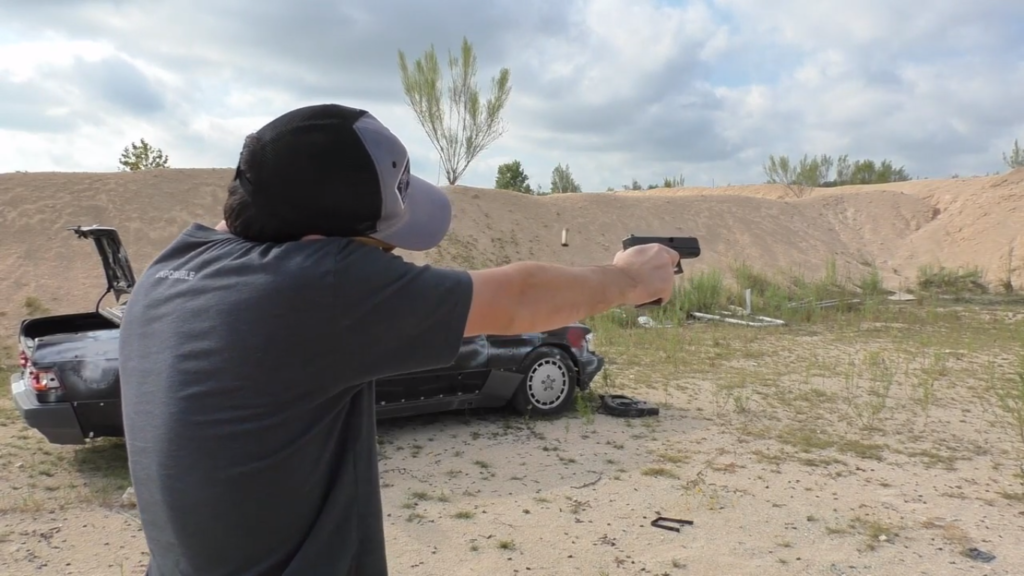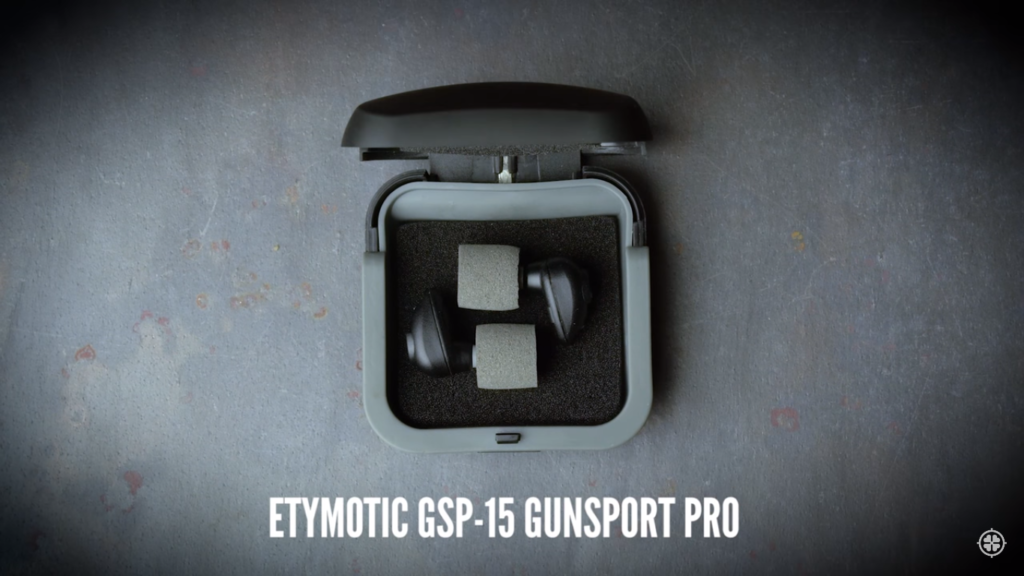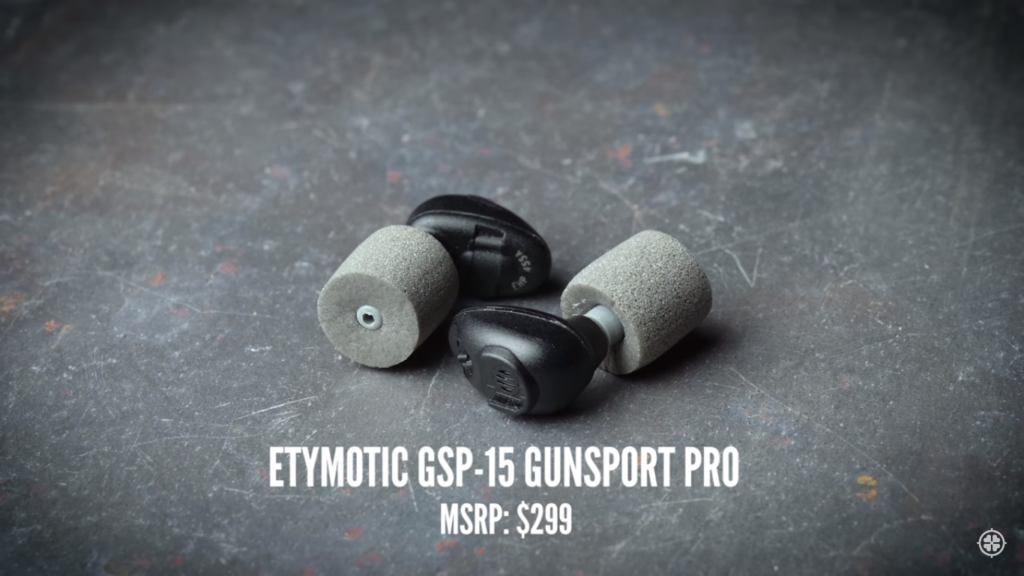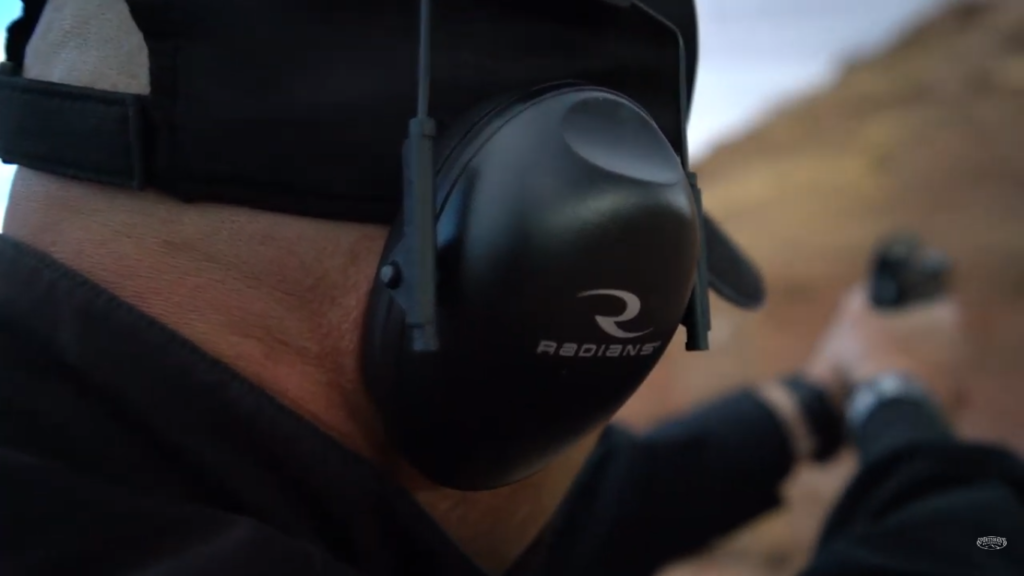Your audiologist will refer to this condition as tinnitus if you feel ringing in your ears. Tinnitus can make it difficult to hear, and the ringing noise can make daily life tough for sufferers. It’s a sign of hearing problems that people can feel in a variety of ways for a variety of different causes.
Even though hearing loss is the third most prevalent chronic physical illness in the US. Many people who engage in shooting or gaming activities run the risk of developing a shooter’s ear. Therefore, it’s crucial to put on protective clothing when engaging in shooting activities. This article explains how long do your ears ring after shooting a gun.
What Happens If A Gun Goes Off Next To Your Ear?

The sound wave produced by a gunshot next to your ear exerts considerable power on the eardrum. The inner ear is filled with fluid, receives a shock pressure of the sound. After shooting, you could feel that the sounds in your immediate environment are muted and difficult to hear.
Additionally, a ringing ear from the muffled sound of a gunshot may signal hearing loss brought on by noise. In most cases, these symptoms disappear within 16 to 48 hours. In rare circumstances, it can take a week or more. If you are exposed to loud noises once more, the ringing could begin again.
Why Does Ear Feels Clogged After Shooting Gun?
The inner ear, packed with fluid, receives a shock because the ear can’t take the pressure of the sound. After shooting, you could notice that the sounds in your immediate environment are muted and difficult to hear. You have a quick threshold shift or transient hearing loss.
Can You Shoot A Gun Without Ear Protection?
It is essential to wear hearing protection whenever you fire a weapon of any type. It could be alluring to fire a rifle without ear protection at the time, but you might live to regret the results. If you don’t utilize the right protection, you could harm your hearing over time.
Symptoms of Gunshots Hearing Damage Without Ear Protection
If you believe that going shooting without ear protection may have harmed your hearing, watch out for these signs:

Tinnitus
Tinnitus is a ringing in the ears that may begin loudly and then gradually subside. The impact does not always go away completely, though. It can be highly annoying and presents as a sharp tone, similar to a tuning fork put up to the ear. It can also frequently manifest 16 to 48 hours later.
Loss Of Hearing
One of the most obvious signs of ear injury is a decline in your general hearing capacity. You might experience hearing loss if you cannot hear distinct voices, tones, or sounds. It may go away, but it could just as likely worsen over time. In rare instances, Shooter’s Ear can result in a patient losing all hearing in the affected ear.
Partial Deafness
The impacted ear may leave you partially deaf. It will be difficult to hear discussions since sounds will muffled fully. In addition to being partially deaf, the impacted ear could feel fluid-filled. You can feel an aching or uncomfortable sensation in the afflicted ear.
Ear Pain
Likely, the most evident sign of hearing loss and even minor ear pain can be a serious warning sign. It frequently characterizes as feeling something pressing against the inner ear or as if the ear drum has to pierce. Even if the consequences aren’t often long-lasting, serious harm may do if a loud noise causes pain.
How To Stop Ringing in My Ears After Shooting A Gun?
Your brain will incorrectly perceive the sound when hair cells are destroyed, producing the ringing sound. Here are some methods for reducing ringing in the ears.

1) How to Get Rid of Shooter’s Ear?
To begin with, you should wait it out for a short while. You will understand the situation once you see if it succeeds or fails. Most of the time, tinnitus symptoms go away after 48 hours. You should wait 48 hours and see if the issue goes away before you start to worry about other matters. If it does, you have a manageable issue.
The issue may only last a few hours for some people, or it may persist for several days. The problem will likely disappear in a few days if the ringing noise is only happening.
2) How to Regain Hearing After Shooting
The best way to avoid ringing ears is to fasten a suppressor to the muzzle of your gun. Suppressors, often known as silencers, reduce the sound of gunshots so you can shoot without fear of going deaf.
High-quality suppressors that may use with pistols, rifles, and shotguns of various calibers are available; they can lower firing noise by 25 to 35 decibels. Suppressors lessen recoil and firing noise, allowing you to shoot more accurately and comfortably.
3) Shooting Wear Appropriate Ear Protection

Wearing ear protection, such as ear plugs or muffs, is another way to avoid a ringing ear. It reduces the amount of sound that enters the ears. Ear muffs are worn. Earplugs provide the same purpose, but they go within the ears rather than on top of them.
Both solutions can lower the sound of gunfire by 20 to 30 dB. Wear earplugs underneath your earplugs for even greater results. Some shooters go even further with hearing protection by using ear muffs or plugs when using a suppressor.
However, wearing earplugs or muffs is only recommended for safe target practice or match shooting. It does not recommend wearing earplugs or ear muffs while hunting or in a conflict situation because doing so will impair your situational awareness and hinder your capacity to hear warnings or indicators of danger.
Is It Possible to Recover Hearing?
Today, there is no cure for hearing loss that is accepted worldwide. Once your ears are injured, you may have to live with diminished hearing or use hearing aids to compensate. On your alone, you’ll never be able to hear the same thing. You need not endure suffering if you have hearing loss brought on by noise. By boosting and stimulating the cells in your ears using AudioCardio, you may enhance your hearing health and eventually be able to hear the noises you used to hear. It’s vital to know that wearing hearing aids while shooting does not advise because they will amplify the sound of the bullet.
Hearing loss may result from exposure to noise levels above 140 dB. Nearly all weapons produce noise that is louder than 140 dB. A little. Big-bore rifles and handguns can emit sound exceeding 175 dB, while a 22-caliber rifle can make noise around 140 dB.
If your ears are blocked, try swallowing, yawning, or eating sugar-free gum to open your eustachian tubes. Take a big breath and try softly blowing out of your nose while clamping your nostrils closed and keeping your mouth shut. If this doesn’t work, try the next method. You can tell if you’ve been successful if you hear a popping sound.
Tinnitus may result from the brain’s neural circuits ramping up the sensitivity to sound to compensate for the loss of sensory hair cells. It would explain why some tinnitus sufferers have excessive sensitivity to loud noise.